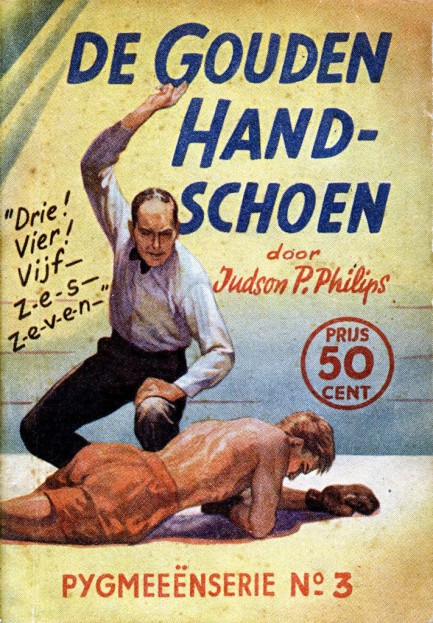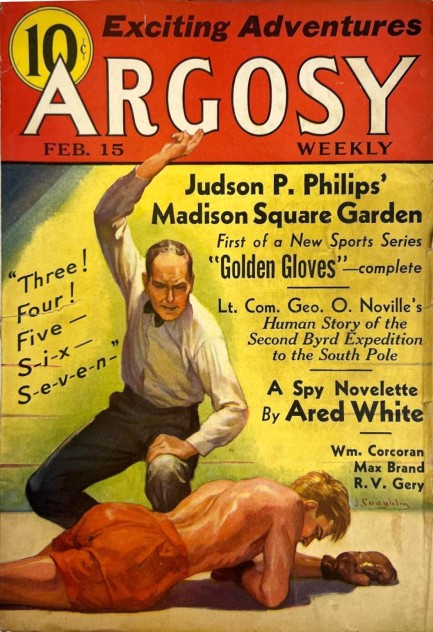| Vintage Pulp | Apr 18 2024 |


Above is a bo-ekibari style poster for the pinky violence actioner Furyô banchô: Ikkaku senkin, aka Wolves of the City: Fast Money. This piece is cousin to the standard sheet for the film we shared a couple of years ago. Just as when we showed you that one we haven't located the movie yet, but we'll keep working on it, if only to find out why star Reiko Oshida has a swastika on her back. We're guessing she's in a motorcycle gang, and it's their emblem. Furyô banchô: Ikkaku senkin premiered today in 1970. You can see the other poster here, and that entry also discusses briefly the swastika symbol in Japanese culture.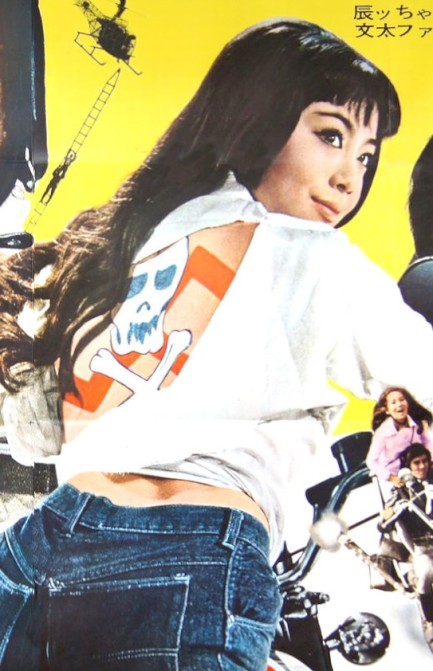
| Vintage Pulp | Apr 18 2024 |

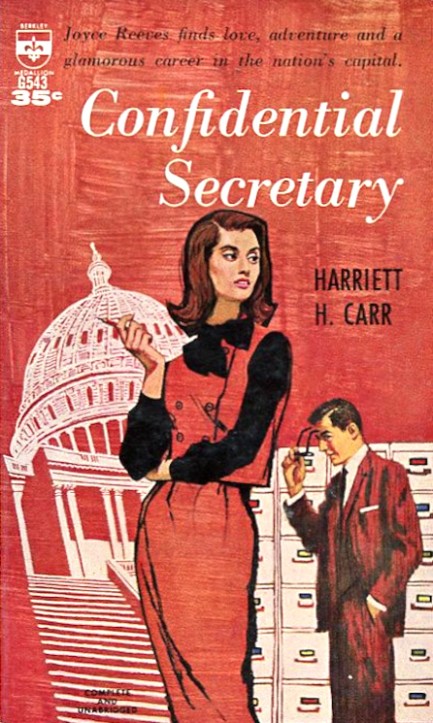
It's election season in the U.S., so above we have a cover for Harriett H. Carr's Confidential Secretary, originally published in 1958, with this Berkley paperback arriving in 1961. It's about a woman who takes a job in a Washington, D.C. corporation and is drawn into congressional intrigue, over the course of which she finds true love. This isn't one we'd read, but it does fit into our cover collection featuring the U.S. Capitol building—soon to be belching smoke and flames, the way things are going over there. The art is uncredited.
| Femmes Fatales | Apr 18 2024 |

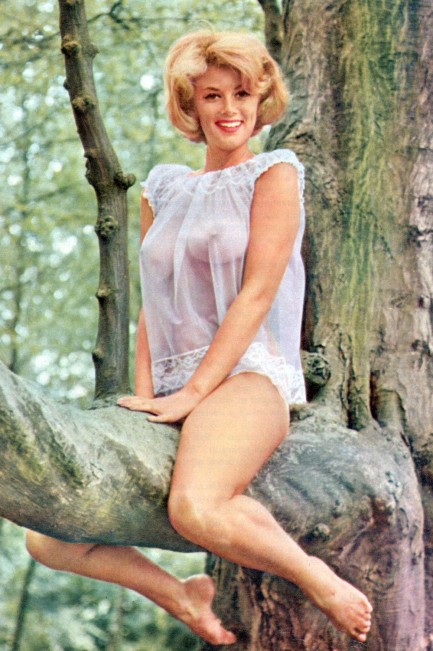
That would be Eve Eden perched on a branch in the above image. She could be pretty high off the ground—the girth of the branch indicates that. We guess she climbed a ladder, or maybe even a scaffold. The photo made the Pulp Intl. girlfriends smile. Verbatim: “No guy ever has to climb a fucking tree for a picture.” Fair point. Eden probably had the same thought waiting for the photographer to say he'd gotten the shot he wanted. You've probably never heard of her. During a nine-year cinema career she appeared in nearly twenty films, including 1959's Naked Fury and 1960's So Evil, So Young, but most of those roles were tiny or uncredited. However she was also a popular magazine model and may be better remembered for her work in that medium. We saw her in a 1969 issue of Adam last year, but this is a much better shot. You have to applaud her effort.
| Vintage Pulp | Apr 17 2024 |

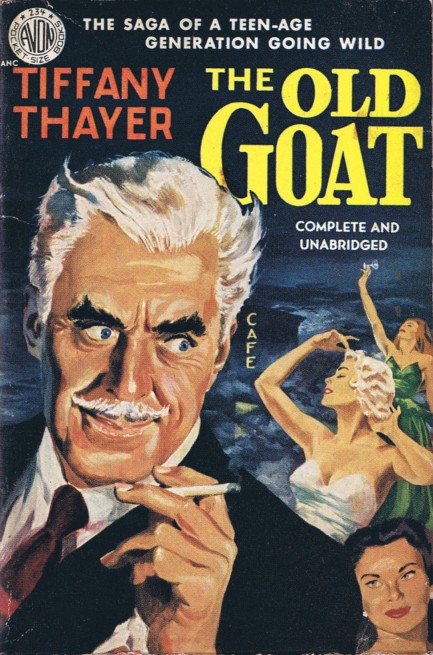
We've been having an ongoing conversation with the Pulp Intl. girlfriends about the word, “cougar,” when used to refer to older women who chase younger men. They say there's no male equivalent. If you're an older man chasing after young women, you're just a man, we were told. We think cougar is kind of a fun slang term, but then we are neither women, nor women in that age range, so our opinion doesn't actually count.
Anyway, we came across this cover for Tiffany Thayer's 1950 novel The Old Goat, and we're going to go with "goat" as a term for a male cougar. And no, not “greatest of all time.” Just goat. We'd like it to catch on, but sports fans have a firm hold on it at the moment. However, we'll do our part to change that if you do yours. The art on this, by the way, is by an unknown, but the rear cover and several interior illustrations are by Lyle Justis.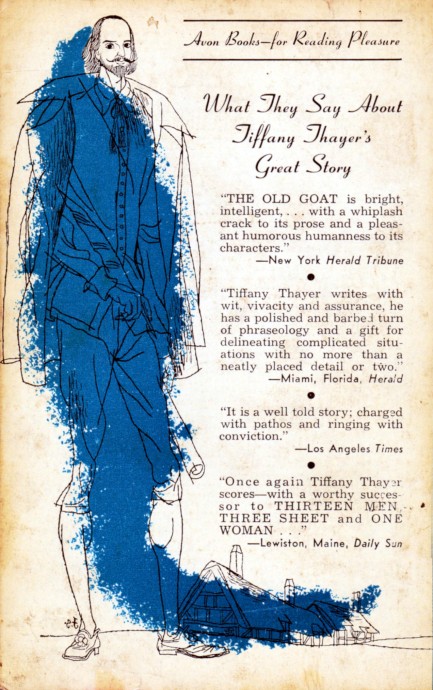
| Vintage Pulp | Apr 16 2024 |

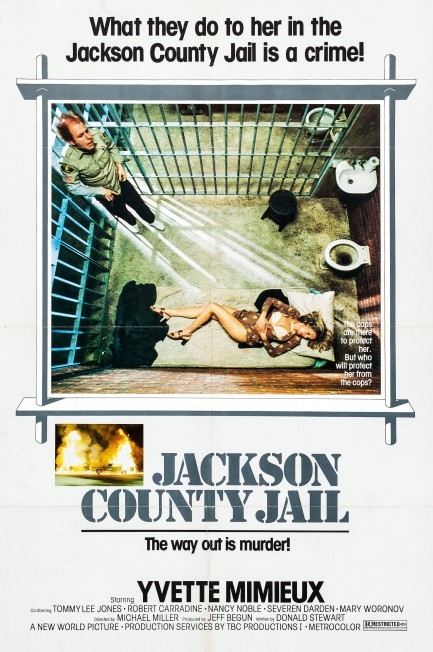
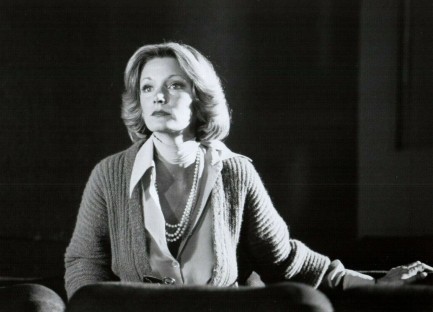
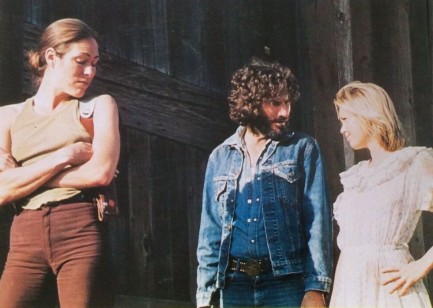
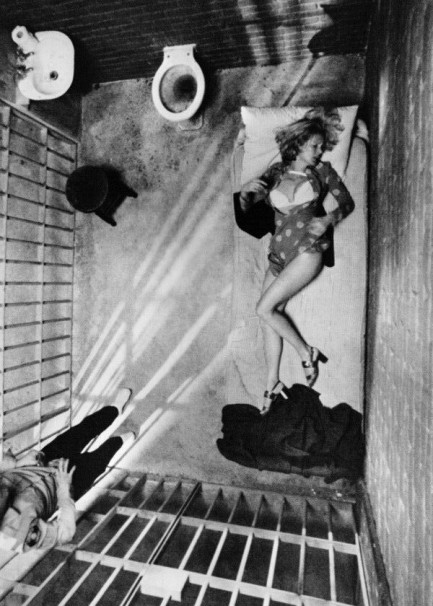
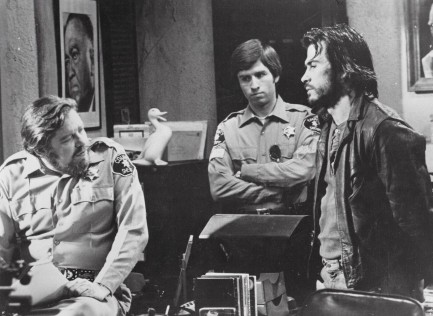
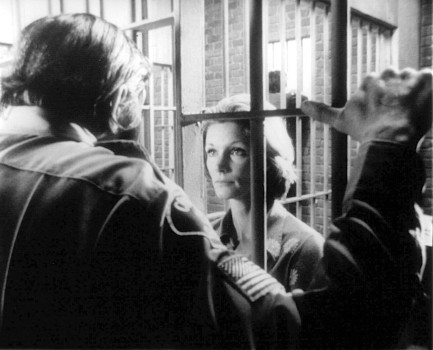
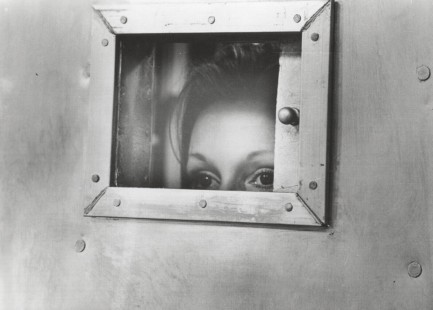
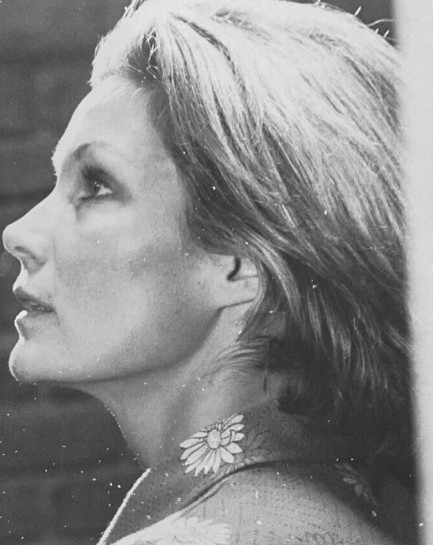

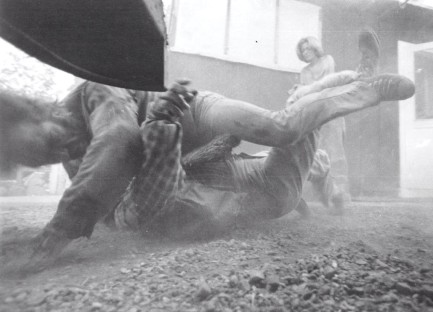
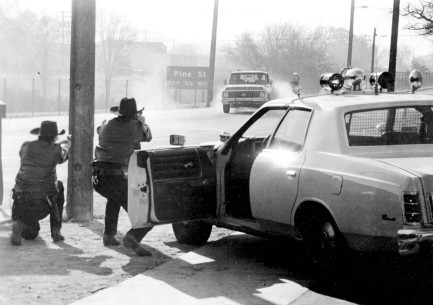
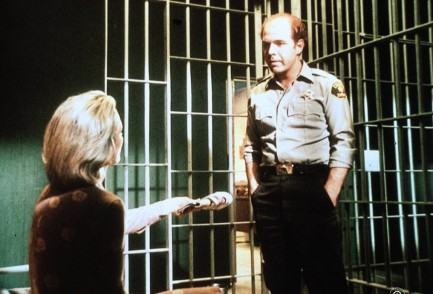
| Vintage Pulp | Apr 14 2024 |

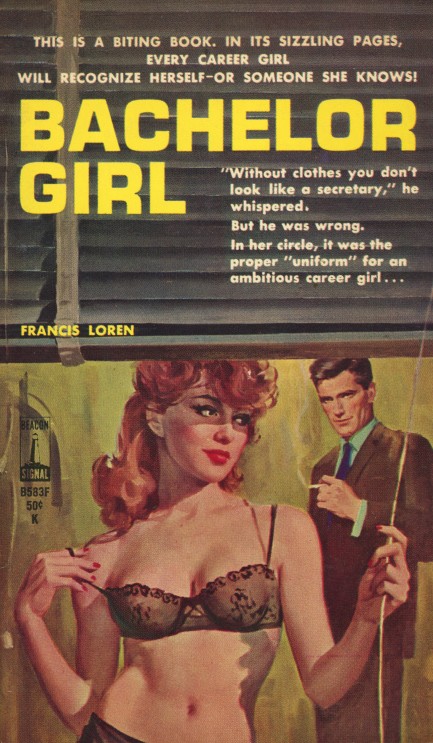
Above: a cover for the 1963 novel Bachelor Girl by Francis Loren. This was painted by acknowledged master Robert Maguire. As for Loren, we'll soon find out about him. We have one of his novels on deck. We've put together a couple of collections of covers featuring Venetian blinds. You can see those here and here.
| Femmes Fatales | Apr 14 2024 |

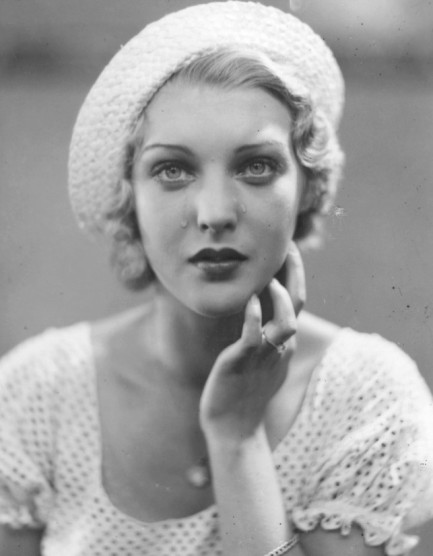
This striking shot shows Swedish actress Brita Appelgren, who starred in seventeen movies between 1926 and 1936. All her films were made in Sweden, so she's obscure to U.S. audiences, but there's nothing obscure about this shot. It's been well disseminated online. It was made in 1932.
| Modern Pulp | Apr 13 2024 |

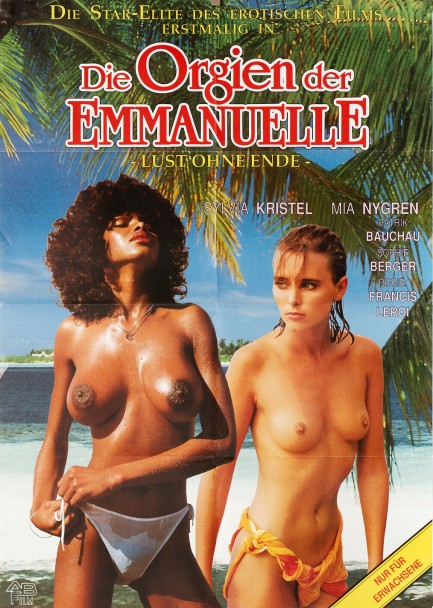
We'll return to paperback covers tomorrow, but for the moment we're running with the same sort of material we posted a couple of days ago, because as the weather warms thoughts naturally turn to sensual pleasures. We can't think of a movie more sensual than Emmanuelle IV. Set in our planet's most sensual country, steamy Brazil, it was the entry in the Emmanuelle series that ushered original lead Sylvia Kristel out the studio gate, and brought in the first of several new Emmanuelles, in this case Swedish actress Mia Nygren.
This West German poster, on which the film is titled Die orgien der Emmanuelle, or “the orgies of Emmanuelle,” caught our eye because—well, for several reasons—but mainly because Nygren is pushed into the background by Camella Donner, aka Camella Thomas. Why is that so interesting? Because she isn't in the cast. She probably wasn't even on the same continent. We guess the West German distributors wanted to sex up the poster a bit more. Donner would have been a great addition to the film, but even without her it was fun. Ridiculous, stupid, carnivalesque fun. They don't make 'em like that anymore. Emmanuelle IV premiered in West Germany today in 1984.
| Vintage Pulp | Apr 12 2024 |

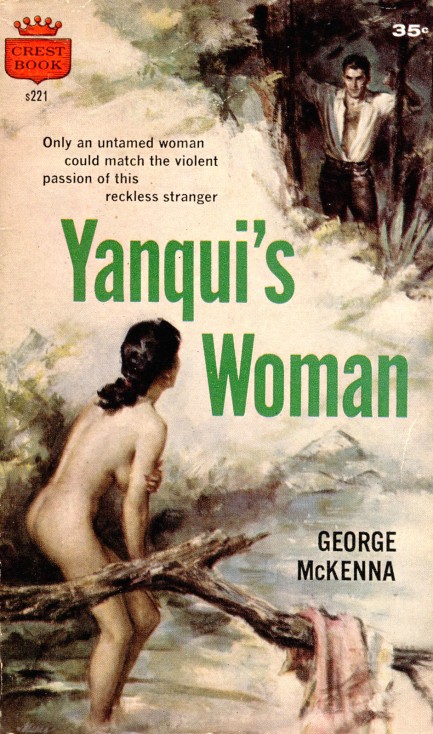
We've shared so many covers of unfortunate women being surprised while bathing in ponds and streams that we can't believe we missed this one by James Meese for George McKenna's 1958 novel Yanqui's Woman. Well, consider it an addition to the group, which is scattered in posts here, here, here, and here.
| Vintage Pulp | Apr 11 2024 |

